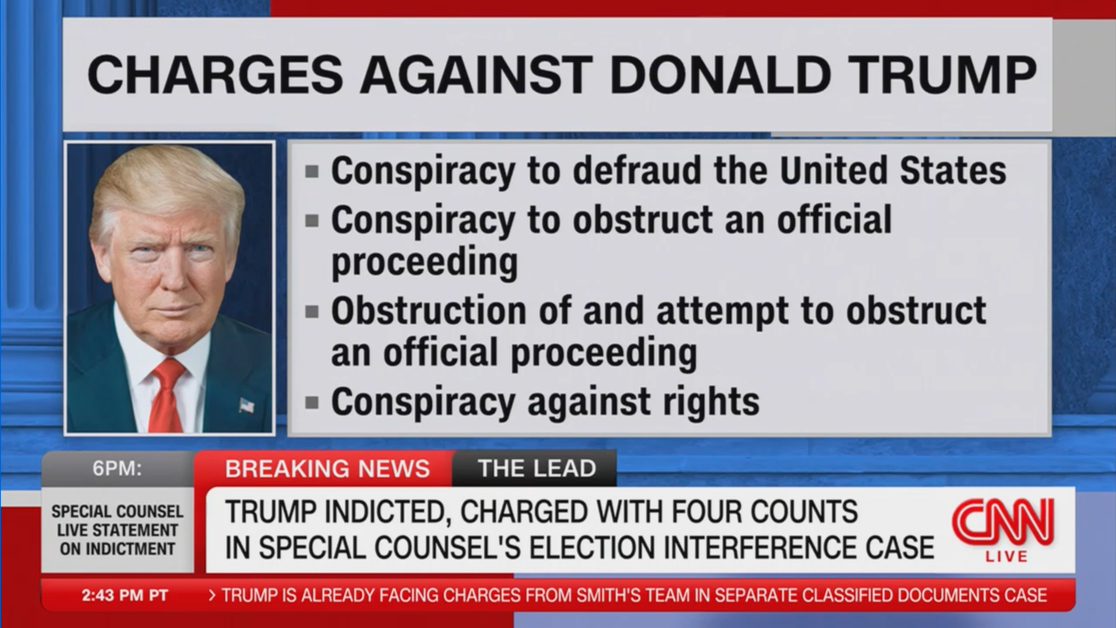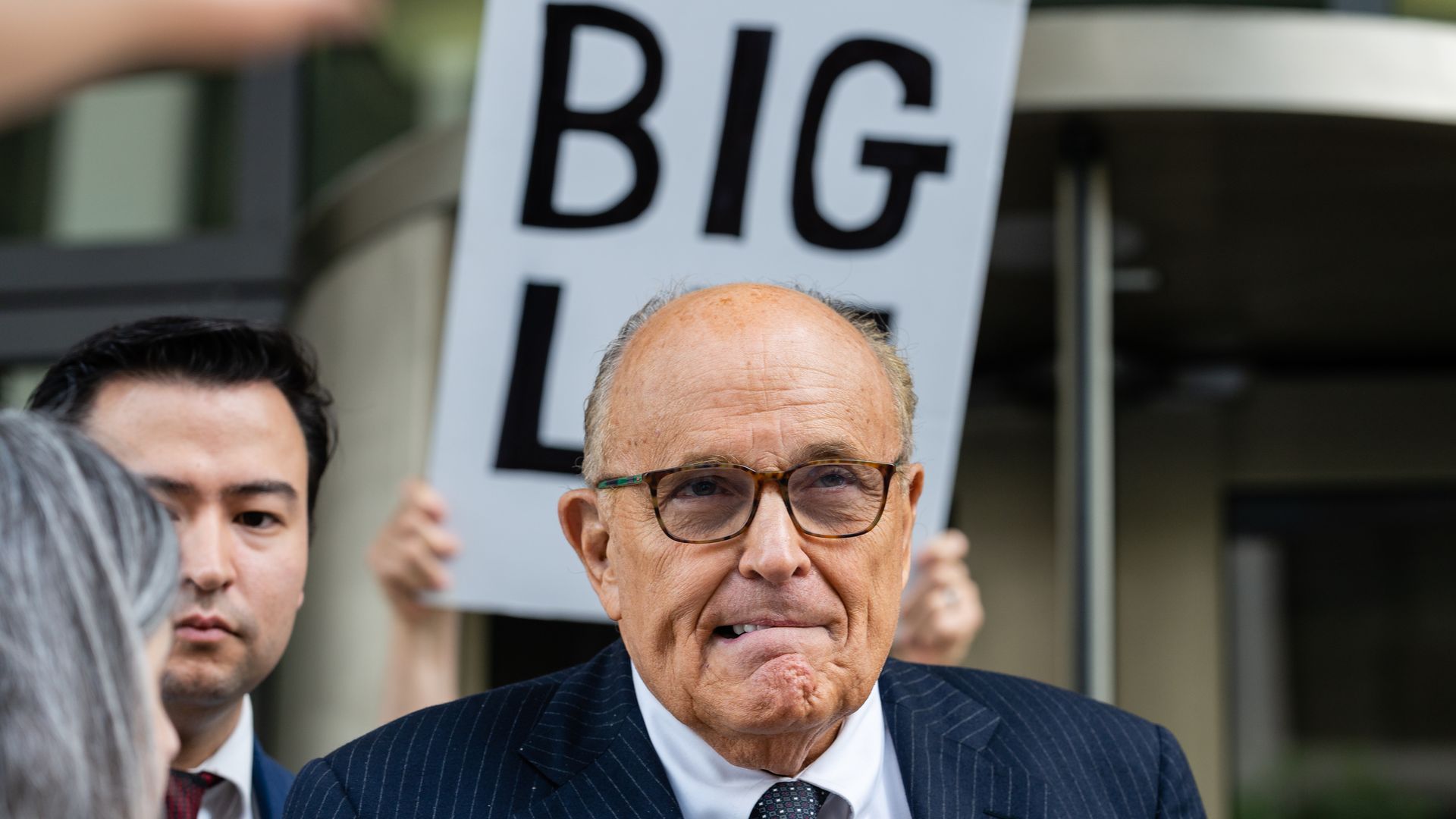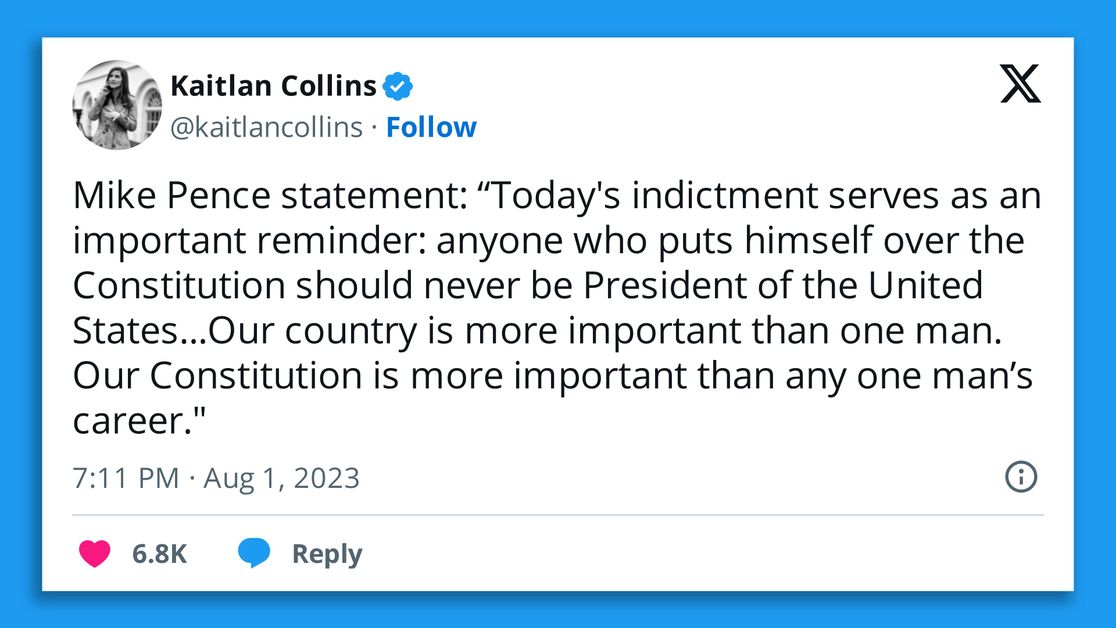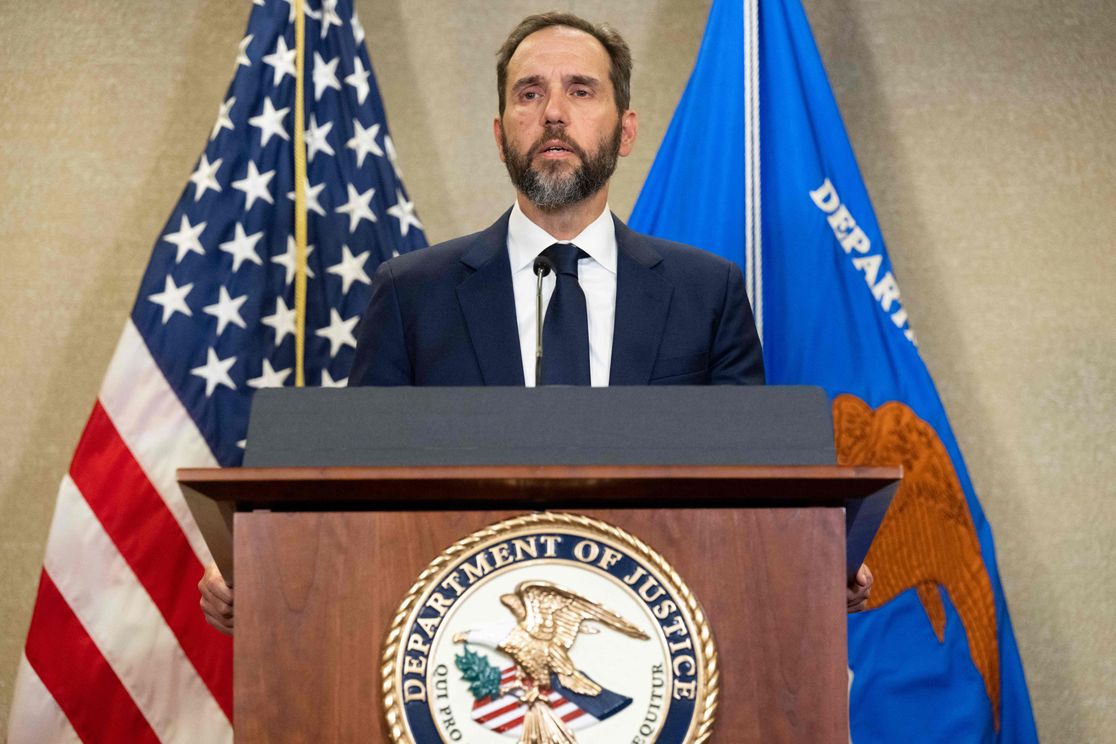What Makes This Latest Indictment The Hot Oil That Could Fry Trump

| 1 big thing: "Fueled by lies" | ||
Today's historic, four-count indictment against former President Trump begins with a simple but devastating statement of facts at the heart of the case prosecuted by special counsel Jack Smith: The defendant, DONALD J. TRUMP, was the forty-fifth President of the United States and a candidate for re-election in 2020. The Defendant lost the 2020 presidential election. Why it matters: The 45-page indictment — the third brought against Trump in just over four months — goes on to detail a sweeping, multi-pronged scheme by the former president to cling to power through claims of election fraud he knew were false.
Smith announces Trump's indictment. Photo: Saul Loeb/AFP via Getty Images Driving the news: The indictment alleges that beginning shortly after Election Day, Trump perpetrated three criminal conspiracies as he sought to discount legitimate votes and reverse President Biden's victory:
Trump was also charged with obstruction of an official proceeding for his alleged "exploitation of the violence and chaos at the Capitol" on Jan. 6. Between the lines: The indictment breaks down Trump's alleged plot to overturn the election into five categories:
Zoom in: The indictment alleges that when Pence told Trump on Jan. 1 that he had no constitutional authority to reject electors, the then-president replied: "You're too honest." The bottom line: Americans may be numb at this point to the seemingly never-ending legal troubles afflicting Trump, who polling shows is running competitively with Biden in a hypothetical 2024 rematch.
| ||
| 2. ⚖️ The alleged co-conspirators | ||
 |
Rudy Giuliani leaves federal court in D.C. on May 19. Photo: Eric Lee/Bloomberg via Getty Images
The indictment alleges Trump enlisted six alleged co-conspirators — not named in the document and not indicted — in his criminal efforts to overturn the election.
Based on public reporting, they appear to be:
- Co-conspirator 1: Rudy Giuliani, an attorney who knowingly spread false claims and pursued strategies that official Trump campaign lawyers would not.
- Co-conspirator 2: John Eastman, an attorney who sought to use Pence's ceremonial role counting the electoral votes to obstruct certification on Jan. 6.
- Co-conspirator 3: Sidney Powell, an attorney whose unfounded claims of election fraud Trump embraced, while privately acknowledging they sounded "crazy."
- Co-conspirator 4: Jeffrey Clark, a Justice Department official who sought to use DOJ to open sham investigations and pressure state legislatures.
- Co-conspirator 5: Kenneth Chesebro, an attorney who helped devise and attempt the plan to submit fraudulent pro-Trump slates of electors to Congress.
- Co-conspirator 6: An unknown political consultant who helped implement the fake elector scheme.
What to watch: "Our investigation of other individuals continues," Smith said in his statement.

The indictment devotes nearly three pages to recounting the many advisers and entities who told Trump that his election fraud claims were false, including:
- Pence, who "personally stood to gain by remaining in office" as part of Trump's ticket.
- Senior DOJ leaders appointed by Trump to investigate fraud.
- Director of National Intelligence John Ratcliffe, who disabused Trump of the notion that findings regarding foreign interference would change the outcome.
- The Department of Homeland Security's cyber chief Chris Krebs, whom Trump fired after he called the 2020 election "the most secure in history."
- Senior White House attorneys.
- Senior Trump campaign officials.
- State legislators and officials who supported Trump.
- State and federal courts.
Why it matters: "I would like [prosecutors] to try to prove beyond a reasonable doubt that Donald Trump believed that these allegations were false," Trump lawyer John Lauto told Fox News tonight.

Comments